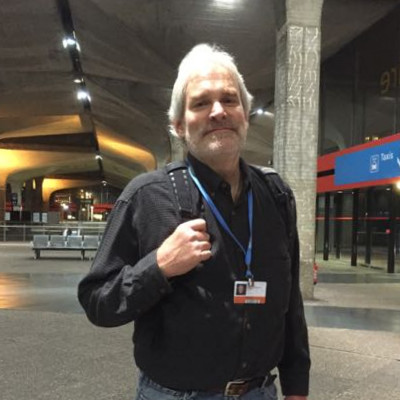
Delegates, ministers and observers worked late into the night last night -- deliberating over the latest "clean" text released by the COP presidency on Wednesday afternoon. Slimmed down from 43 pages to only 29, the text now leaves far fewer options for ministers to choose from by the Friday deadline.
Many parties have suggested that Wednesday's text "wasn't perfect" but was a "good start," which raises the question of not if a deal will be reached, but how the key issues still in play will resolve in the coming hours.
If you've been following along, you've heard it all before -- loss and damage, differentiation, climate finance, ratcheting up ambition. But as U.N. General-Secretary Ban Ki-Moon said at a press conference on Monday, "Perfection is our enemy." Any deal, especially one of this magnitude and urgency, requires compromise -- seizing what Mohamed Adow of Christian Aid calls "the political moment before us" to put "shortsighted interests" aside in favor a truly ambitious deal.
We've heard that before, too. The rhetoric of ambition over the past two weeks must now be translated into firm commitments and set down in text.
"Rome was not built in a day," Adow said at a press conference on Thursday morning, "but the architecture must be in place before it can be built at all." Undoubtedly few expect a "perfect" outcome in Paris, but Adow outlined three key points that reflect what many here on the ground feel are, as he put it, "not tradable."
- Loss and damage: Without it, the most vulnerable countries will increasingly suffer the worst impacts of a changing climate for which they are largely not responsible.
- Finance: Without it, developing countries will lack the means to engage in the new energy revolution already in progress.
- Ambition: This refers to codifying in text how countries will increase their ambition by no later than 2018, with a solid framework of transparency incorporating reporting and review by all countries. Otherwise, the world is locked into a 3-degrees Celsius path until 2025. The whole world looses.
"We will get a deal," Adow said, the question is "whether it will be a weak deal or a strong deal."
"The key pillars of the Paris Outcome are in place," added Alex Hanafi of the Environmental Defense Fund. Both Adow and Hanafi emphasized the stark difference between COP15 in Copenhagen and the ongoing Paris talks. By the middle of the second week in 2009, negotiations had essentially fallen apart. There are still serious differences and issues echoing in the plenary halls, but "never before have we been so close" to a global climate agreement.
We sit in a historic political moment and await the outcome.
Image courtesy of Le Centre d'information, courtesy flickr
This post first published in GlobalWarmingisReal

Tom is the founder, editor, and publisher of GlobalWarmingisReal.com and the TDS Environmental Media Network. He has been a contributor for Triple Pundit since 2007. Tom has also written for Slate, Earth911, the Pepsico Foundation, Cleantechnia, Planetsave, and many other sustainability-focused publications. He is a member of the Society of Environmental Journalists














